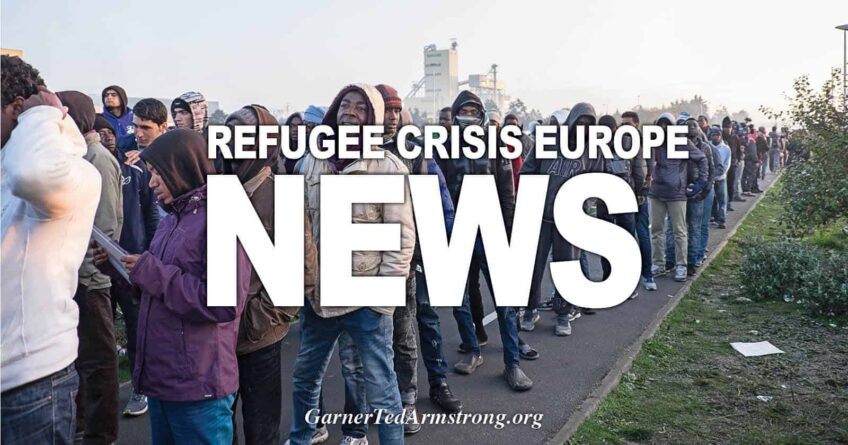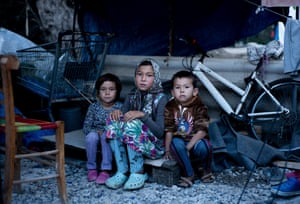
Raihan Mohammadi, five, Farzan Mohammadi, 11, and Ilyas Rezwani, five, in Moria on the Greek island of Lesbos. Photograph: Alice Aedy
When photographer Alice Aedy first covered the refugee crisis in 2016 she believed Europe would respond with humanity to images of families seeking shelter and safety. As conditions on the Greek islands worsen, however, she reflects on her role as a photojournalist with our social platforms editor Eleni Stefanou. Aedy met some of those surviving in the heavily overcrowded Moria camp on Lesbos with the support of NGO Help Refugees
There was a tangible sense in 2016 that, if only the world knew what was happening, we would rise to tackle the challenge of the refugee crisis. I never thought that three years on little would have changed. In fact, the situation in Greece seems bleaker than ever.
Looking back, I realize I was naive. We have not only failed, but we have also broken promises. Britain pledged to take 3,000 unaccompanied minors. We have taken just over 200.
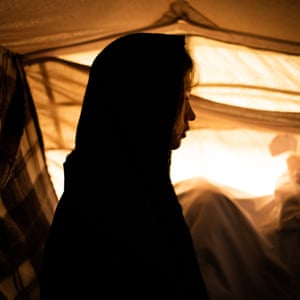
I lost my sister on the journey from Afghanistan. I go to the new arrivals center every day, hoping she might be there
The conditions in the camps are squalid and chaotic. Interviewing people in their temporary homes, I started to imagine sharing a tiny tent, a space not big enough to stand up in, with my five family members. Even the thought is unfathomable.
The first person I interviewed was a 24-year-old Afghan woman who had lost her sister on the journey from Afghanistan to Greece. As I watched tears stream down her face, I had to hold back my own.
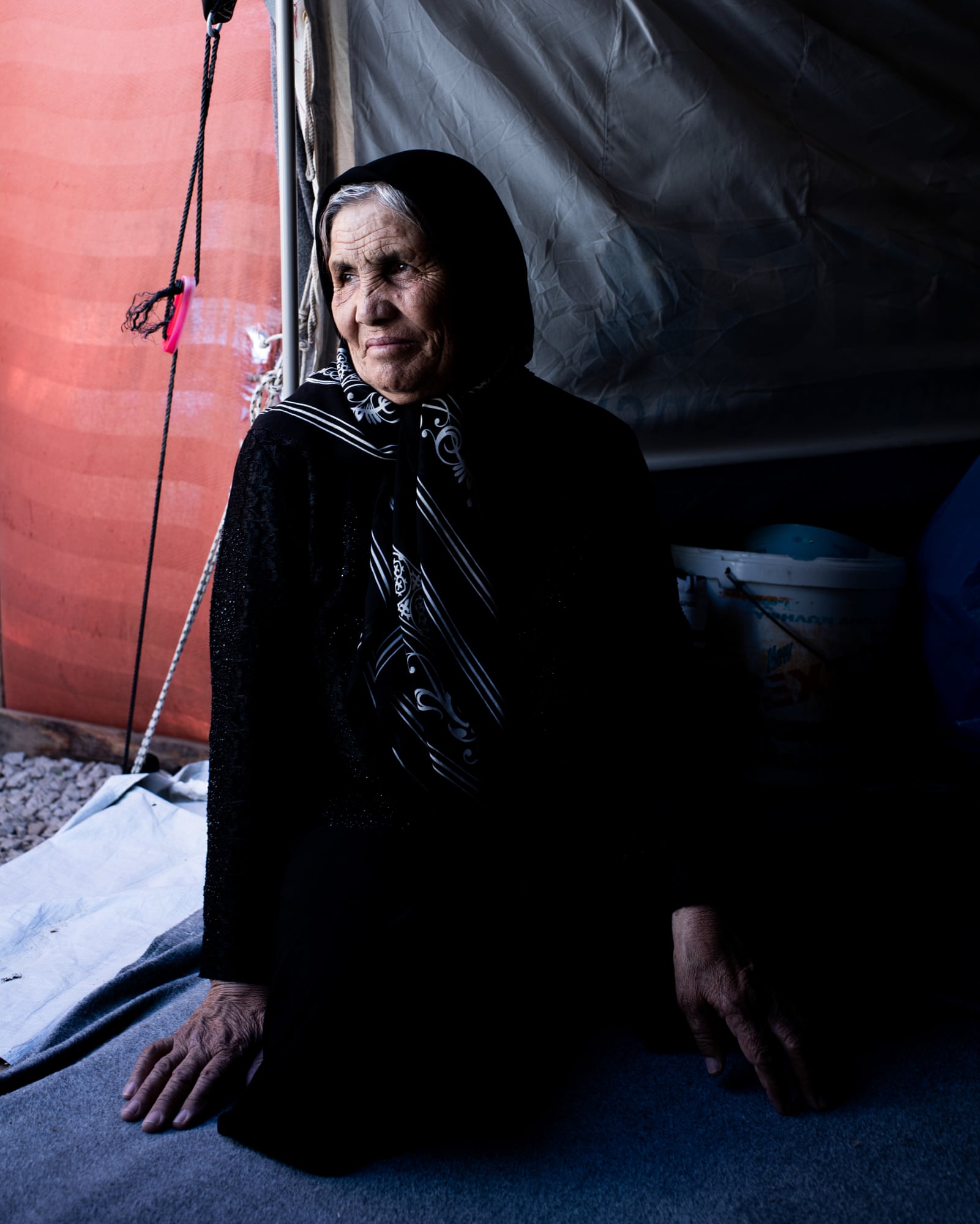
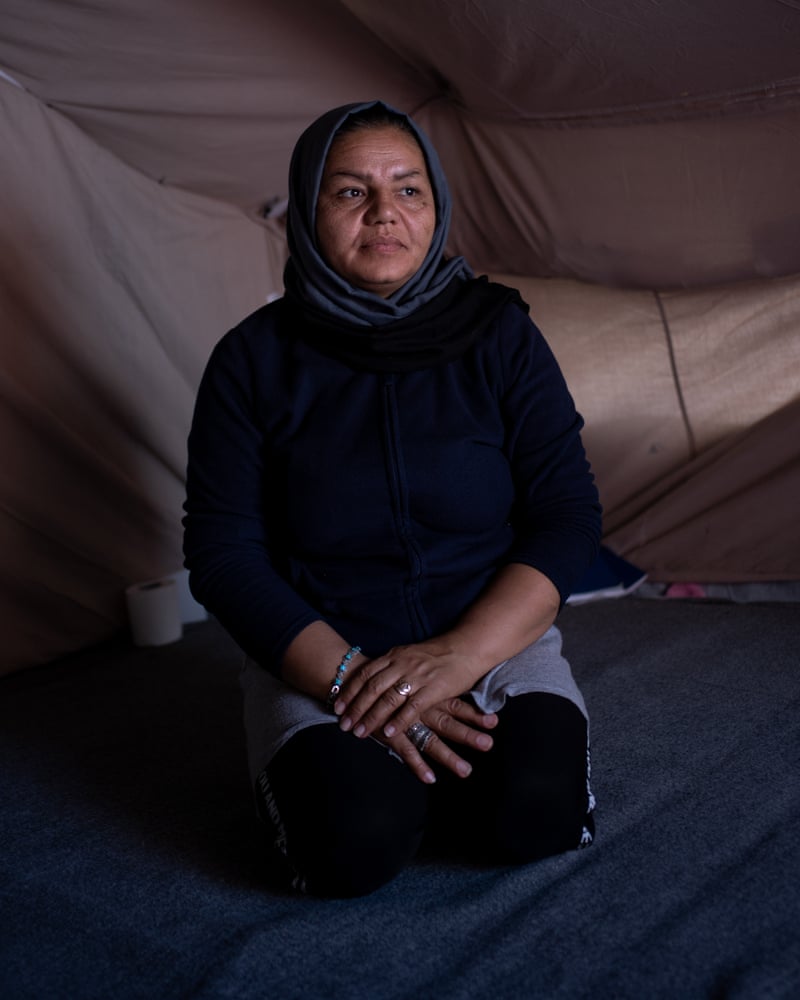
Life here is very difficult. The toilet is very dark and dirty. They said we will only get our bank card in eight months. Fatima Hosseini, 70 (left)
The fighting and theft in this camp is a big problem. People are desperate. —Marzieh Haidare, 45, (right)
I hate asking the same reductive questions to each person I meet – “Where are you from?” “Why did you leave?” – knowing that what they say will never do justice to the pain and hardship of their journey. What I really wanted to ask everyone I met was “How do you survive here?”, but the words wouldn’t leave my lips for fear I would alienate them.
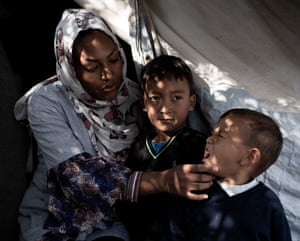
Masouma Ibrahimi, 42, Afghanistan with Ali Aghbar, seven, and Ali Akbar, two.
I weaved through muddy tracks in the tiny spaces between cramped tents, with a crisscross of cables above providing enough energy for a small light in each tent. Everywhere I looked, kids played in filth. I counted just two sets of portable cabin toilets for almost 13,000 people. Next to them, a pile of rubbish as tall as me. I was heartbroken to hear from countless women that they were unable to go to the toilet alone at night for fear of being raped.
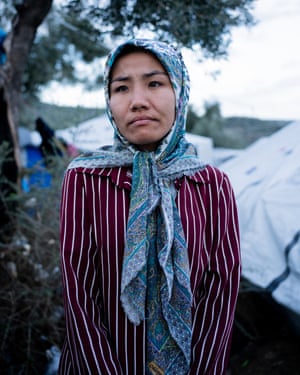
In Afghanistan, you can die in a moment. Here, in each moment we are dying. There is no humanity here. —Fatima Hosseini, 25
I met a 25-year-old Afghan woman called Fatima Hosseini. I will never forget her words. Practically speechless, I said softly: “I’m so sorry.” She replied: “Everyone comes here and says sorry. I hate this word.” I took her portrait, knowing I may not be able to give her anything in return.
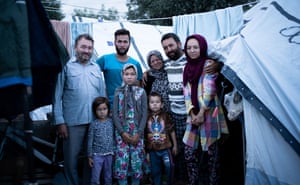
Mohammad Rezwani and his family
It’s hard not to be acutely aware that at the end of the day, I was able to leave the horrors of the camp behind. I never quite shake off the discomfort of such an unjust imbalance of power.
Moria is an old military base designed to house 3,000 people, but it’s home to more than 14,000. Makeshift hairdressers and market stalls were a few reminders of civilization in the chaos of everyday life in the camp.
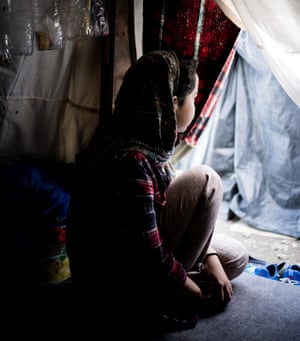
We don’t live here. We just survive. I can’t sleep. I had my first day at school yesterday. The activities distract me. —Zayneb, 15
Many Greek people have been unsung heroes on the frontline of the crisis, but the national mood has grown increasingly hostile to refugees. The volunteers I met, many of them Greek, were exhausted. The strain on those living on the islands is evident. On some of the islands, the number of migrants is now equal or close to the number of residents. Tensions will only grow as these conditions are allowed to worsen.
Locking people up indefinitely is not a solution. We must see a serious commitment from the Greek government to put a place in the plan to provide asylum and routes to resettlement. However, Greece must not be left alone to provide an adequate immigration policy. This is a collective European problem that needs a collective European response. Refugees arriving on Greek shores have fled violence and untold horrors. They do not deserve to be met with detention, hostility and further suffering.
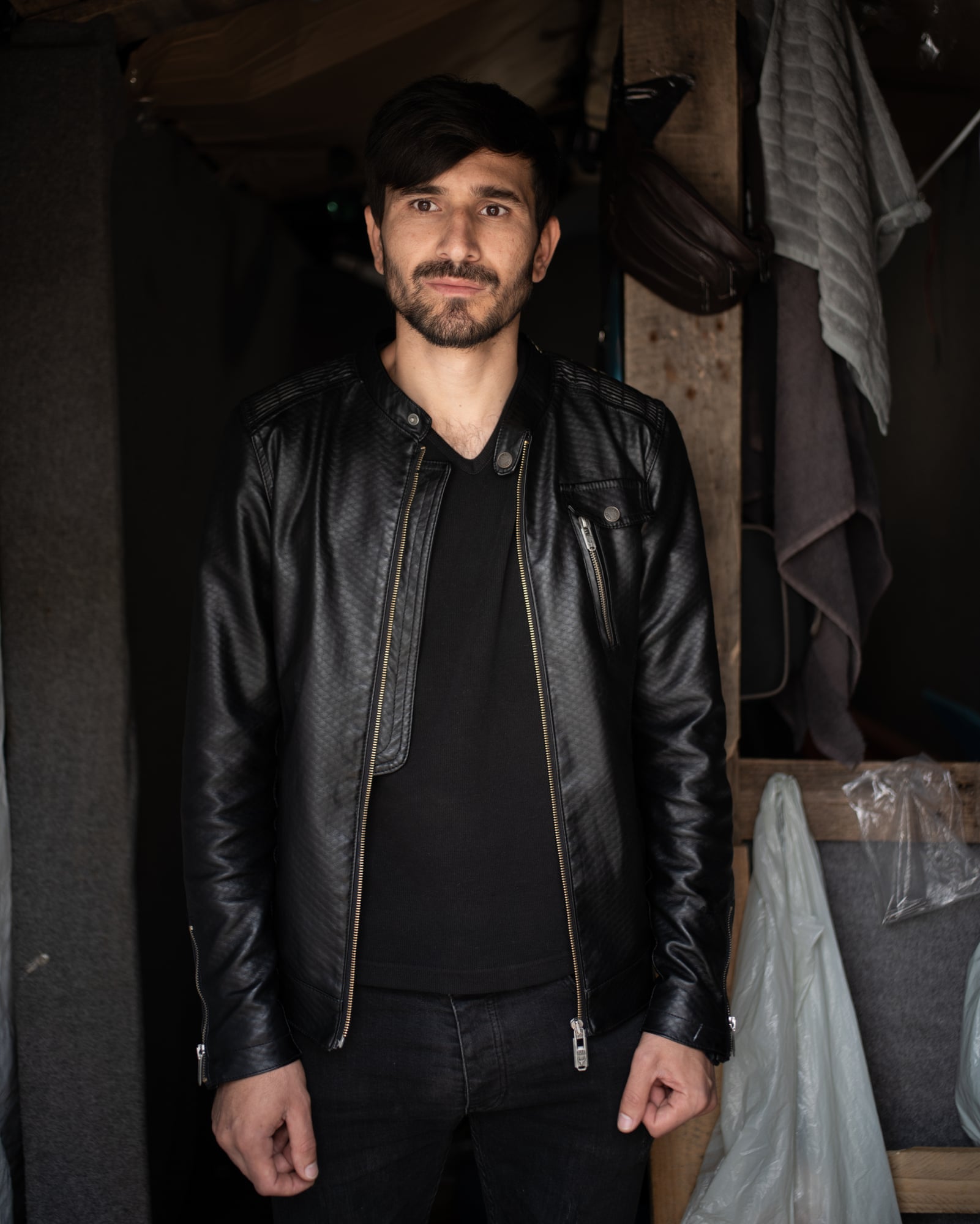
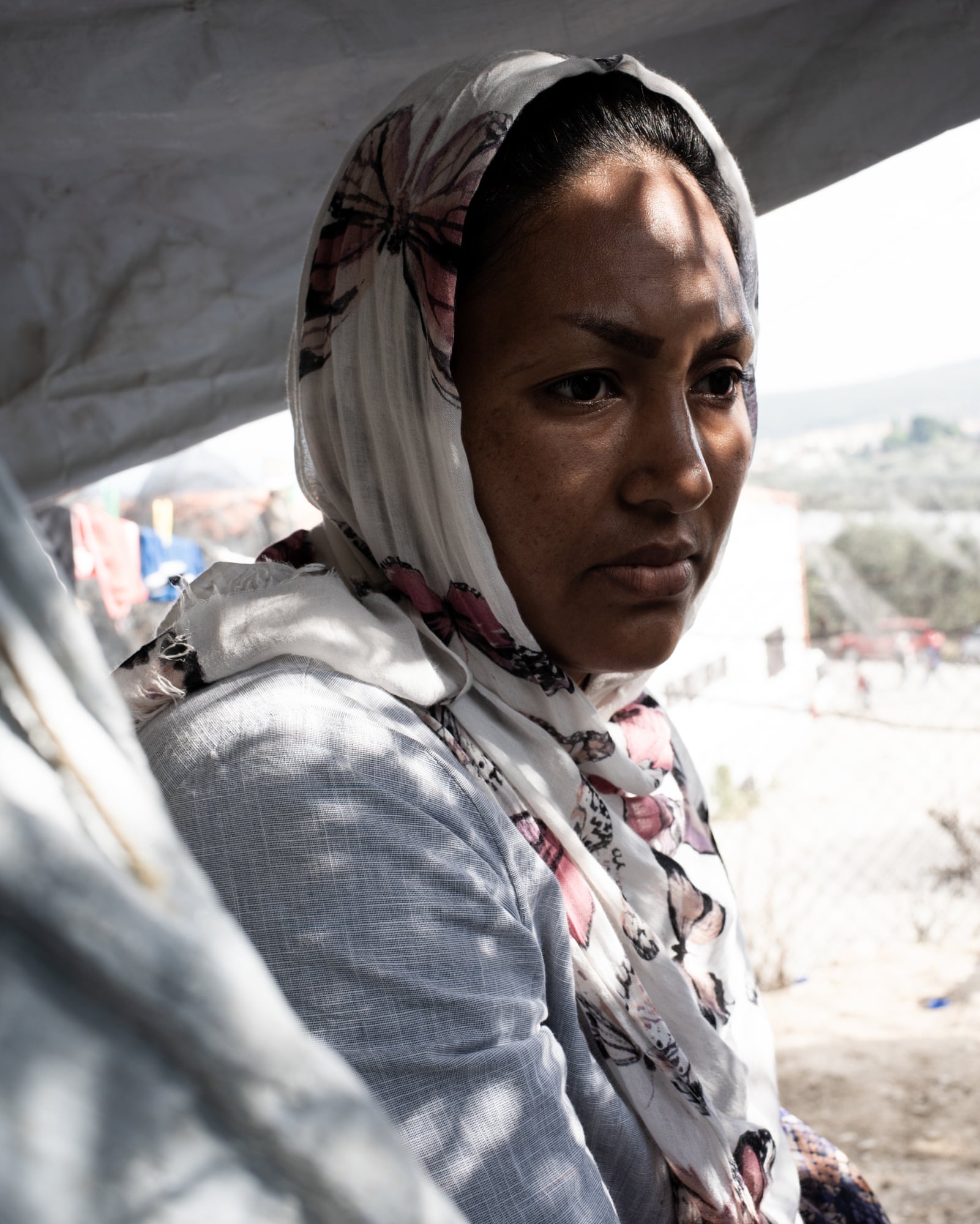
Yassin Raqyar, 27, and Massouma
The photo of Alan Kurdi symbolized the power of photography to capture the world’s attention, even for a brief moment. The three-year-old’s tragic death inspired the establishment of the remarkable grassroots organization Help Refugees and was ultimately a catalyst for the work I do now.
I wish I could say his death had been a wakeup call for us all, but since 2015 we have turned a blind eye as the Mediterranean has become the most dangerous border in the world.
I have felt increasingly disillusioned, but I hope I never lose faith in the power of the image. Hope also comes from the actions of the grassroots groups on the Greek islands providing the most basic services where governments are failing. The brave heroes who have crowdfunded for rescue boats and now patrol the seas saving lives every week. The volunteers who have been the sole provider of toilets, showers, and taps in and around the Moria camp for the last few years. The teachers, doctors, and dentists who leave their homes across Europe and volunteer in their holidays to help others.
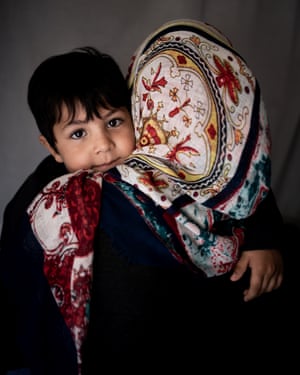
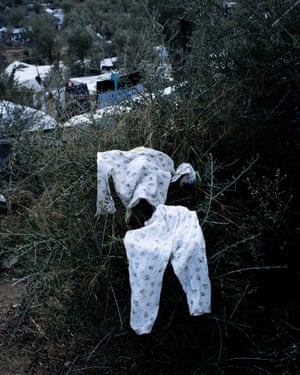
I didn’t know a place like this existed. I would rather have died in my country
Hope comes from those around the world who still care. It is only by recognizing our shared humanity that we accept our moral responsibility to those knocking at Europe’s door. It is ultimately a test of our character.
Life is so hard and stressful here, but we have to keep smiling. This is our message to anyone in power who can help us. If you are human, if you want a safe and secure life for your family, that is all we want, too

